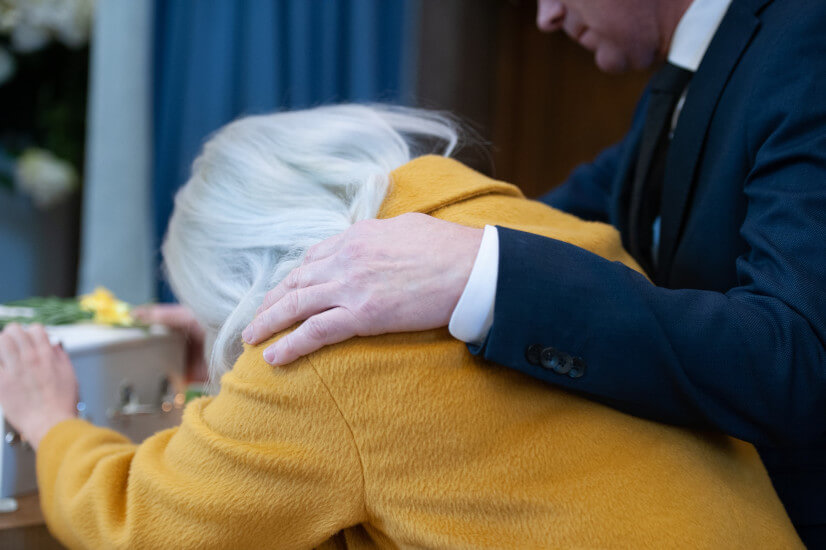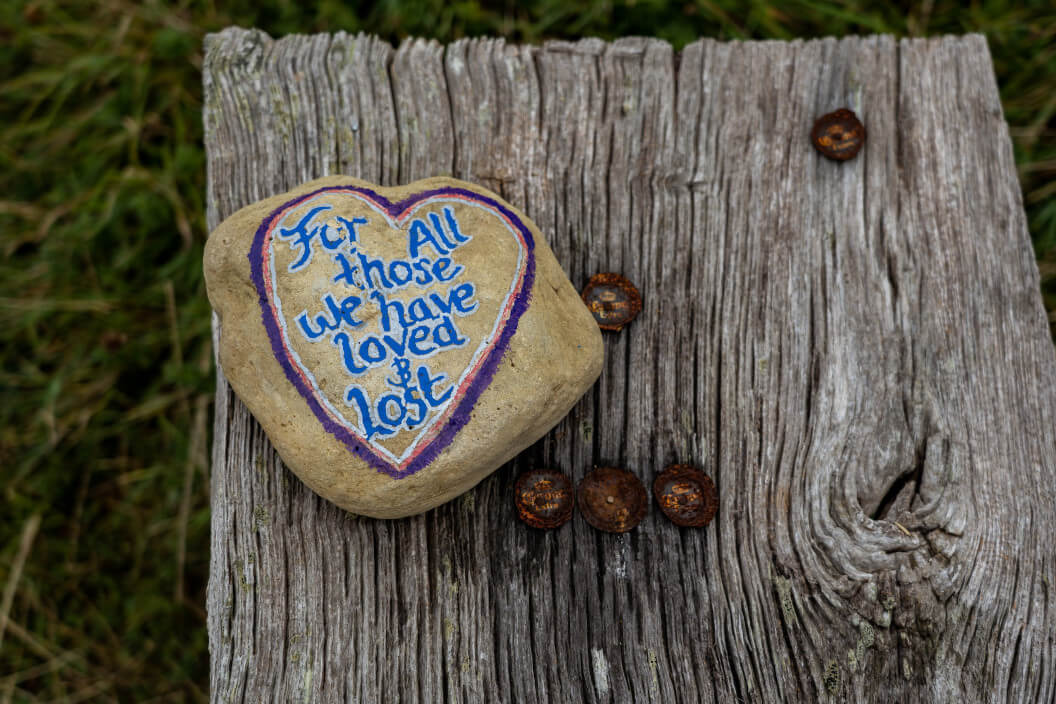People who begin treatment for depression as soon as the first symptoms appear to have…
Losing a partner in life is devastating. Experiences of emotional loss might be intense during this trying time. Our responses vary from person to person. You must realise, though, that you aren’t alone.
There is a healthy way to grieve, and bereavement is a process. By reading this piece, you can get a taste of the joy that awaits you once you’ve moved past your loss. The loss of a spouse might also signal the opening of new opportunities. Do you long to start enjoying life again after losing a spouse, or would you rather wallow in your grief? Do you believe that your loved one would want you to be unhappy? Your options are always open to you.
Grief After Losing a Spouse
Losing a life partner, spouse, or other loved one that you had intended to spend the rest of your life with is a painful experience. You’ve been hurt deeply and don’t know how to move forward.
Grieve
Becoming a widow or widower is a new life stage. Your mind is probably still reeling from the unbelievable events that have just occurred. If your partner previously handled the finances, you may be anxious about their absence.
The Development
At this point, your outlook on life is becoming more clear. Now is the time for you to move on with your life. You can now begin to give attention to retirement preparation and investment analysis.
Grace
The transition phase is a synonym for this period. A new day has arrived, and with it, a new beginning. It’s also the perfect opportunity to make forward-looking plans.
The Harmful Effects of Being a Widow

The first year after a spouse’s death is the most formative, suggests an APA-published article. During the first year after a loss, women’s mental health declined significantly, according to the study’s authors. Widows were shown to have higher rates of depression and lower levels of social functioning than previously thought.

Depression is a major mental disease that has the potential to make a person’s life…

Have you ever set a goal and found your motivation waning midway? Or perhaps, struggled…
Being a New Widow Might Hurt Your Physical Activity Levels
According to studies conducted by Stahl and Schulz, widowhood is associated with an increase in the rates of death and suicide attempts among surviving spouses. The emotional and physical symptoms of a mental illness are made worse by the death of a husband or wife. Physical problems and insomnia are two examples.
The mortality rate for widows is significantly higher than that for married women. The “widowhood effect” refers to the rise in mortality rates that occurs after one spouse passes away. The impact of losing a spouse is felt equally by older and younger men and women. But a widow’s strength is influenced by things beyond her control, such as her social and economic standing.
Some widows combine alcohol and painkillers. An addict’s ideal patient is a grieving widow. According to research, a widow with a mood condition is more likely to develop an alcohol use disorder after her husband dies.
Starting Over in Life After the Loss of a Spouse

The loss of a loved one can happen at any time. Widowhood can happen at any age, even after retirement for some people. Getting over a loss is never simple, but hopefully, these tips can help.
Let Your Feelings Show
Widows who are young and have children to care for might discover it more difficult to work through the phases of grief. Having to raise children alone following the loss of a partner can provide its own unique set of emotional difficulties. Taking the next step may seem impossible right now.
It’s tough to juggle taking care of the kids, working, and physical discomfort. The surviving spouse is going to discover that it’s hard to discover hope or the motivation to move on if they are left with such a struggle. They must maintain their composure to comfort their children during this difficult time. It’s not good for you to stuff your feelings and not give yourself time to grieve. Crying and letting oneself be vulnerable to support others is therapeutic during the grief process.
Get Your Own Life Started
The thrill lies in the discovery of a fresh perspective from which to confront the future. Having a loving family and a sense of accomplishment might serve as psychic currency after the loss of a spouse. Kick off your existence by making a mark on the world. Create a non-profit organisation or take part in volunteer work. Your children may benefit from your involvement with a neighborhood foundation.
Participating in meaningful pursuits like these can help make the transition to widowhood easier. Take some time away from your sorrow. You must get past it, but you must not make it your entire existence.
Create a Network
Get out there and start meeting people and joining clubs. The loss of a partner can cause despair, which can exacerbate the health problems that widows in retirement already face owing to isolation.
You Can Get Help From Others Around You When You Grieve
Get supportive people close to you. Having a network of loved ones and friends, as well as a support group, can be invaluable during a difficult time like this.
Through storytelling, you may connect with others and forge lasting bonds. Meet interesting people by participating in group activities like a reading club. Find someone you can confide in and gain strength from. You can get over it by hanging out with the kids or making new friends through a new pastime. Participating in a group activity can aid in healing and acceptance following the death of a partner.
Create a Mindset That Welcomes Second Chances
Be gentle with yourself if you’re going through difficult grief when typical mourning isn’t taking place. Don’t rush anything. Accepting the death of a husband or wife might take a long time for some people. However, restoration is on the horizon.
Be patient with yourself; this process will take some time. Your feelings of depression, rage, and exhaustion will start to dissipate very soon. Your curiosity about other people and the wider world will gradually return. You won’t become resentful or depressed when other people are happy. This will be the symbol of your revitalization.
At that point, everything will be history. Don’t give up hope that you can heal after the loss of your marriage. The human brain is very good at finding evidence to support the beliefs we already hold. The moment you allow yourself to imagine a future beyond the loss, your brain will start looking for evidence that you are correct. What we want to think is what we end up believing. So, keep an optimistic mindset and aid yourself in starting over.
Stay Away From Drugs and Alcohol
While alcohol and drugs may alleviate your symptoms in the short term, they have long-term negative effects on your body and mind. To cope with their feelings of loss and anguish, some widowers turn to alcohol and narcotics. However, these chemicals can also hinder healing and lead to further health issues. These are not effective methods of dealing with stress.
Release everything at your pace, as you see fit. Your feelings are valuable, so permit yourself to grieve. Even though recovery is gradual, keep in mind that it is happening. If you’re reading this, it’s a good sign that you’re taking baby steps toward a more positive future. If you feel like you’re not healing quickly enough from the pain, try not to worry. Try not to rush the healing process too much, as doing so may lead to a less-than-complete recovery.
- 12 Step Fellowships and Spirituality: Exploring the Connection
- PTSD and Addiction – Exploring the connection between post-traumatic stress disorder (PTSD) and addiction.
- Top 10 Myths About Alcohol
Regaining Your Confidence and Power
Get some much-needed self-care. Try to keep yourself busy and active. Do things that bring you joy to pass the time. Do something you enjoy, take a trip, and spend time with the family. Having compassion, both for yourself and others, is crucial to the healing process.
Consult a Counsellor or Psychiatrist
Talking to a trained professional about your feelings and thoughts can be quite beneficial.
Will a Widow/Widower Ever Be Happy Again?
So long as they reach out for help, they certainly can. They can recover from the hardships they’ve faced and go on to live happy and successful life at their own pace. A widow may unquestionably get through the mourning period with the help of experience and friends. One can always make progress and experience a more fulfilling and enlightening existence. In addition, your partner in death would not want you to be unhappy. They will want you to find happiness and move on with your life.
Accept Your New Life As A Widow
Experiencing loss and mourning is an internal struggle. If you reach out for aid, you’ll see that you’re not in this alone. Get out there and surround yourself with encouraging people and ideas. If you feel you need to see a doctor, do so and take your time healing. Even though it hurts to lose a loved one, there is still more to live for.


